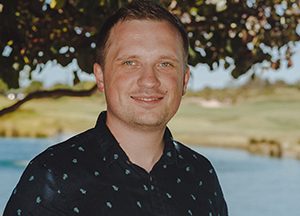
Maciej Pieczarka, Wroclaw University of Science and Technology
Photons were the first bosons to be considered under the quantum statistics known today as the Bose-Einstein statistics. However, they were one of the most recent quantum gases to undergo Bose-Einstein condensation in a controlled environment, which was achieved recently in a microcavity filled with a 6G rhodamine solution. Since these pioneering observations, the principle of light thermalisation and condensation in optical cavities has been anticipated to be a much more common phenomenon.
In this talk, I will present our most recent results on the Bose-Einstein condensation of photons in a well-known semiconductor device, the vertical-cavity surface-emitting laser (VCSEL). We measured a BEC type of behaviour when crossing the critical phase-space density and observed a thermalised distribution of photons, equilibrated to temperatures lower than those of the device. Nevertheless, the measured spectroscopic and caloric properties show all predicted effects for a Bose-Einstein condensate phase transition in thermal equilibrium. I will discuss our observations in context of a driven-dissipative nonequilibrium Bose-Einstein condensation phenomenon and possible applications in the well established technology of VCSELs.
About the presenter
Dr Pieczarka is an experimental physicist working as an assistant professor at Wroclaw University of Science and Technology (WUST). Maciej works closely with FLEET Partner Investigator Professor Grzegorz Sęk at WUST, seeking high-temperature operation of exciton-polariton lasers based on AlGaAs compounds and additionally investigates the properties of room-temperature condensates light in laser cavities. Maciej has been a long-term collaborator with CI Elena Ostrovskaya and used to work as a research fellow in FLEET in 2018-2020.
